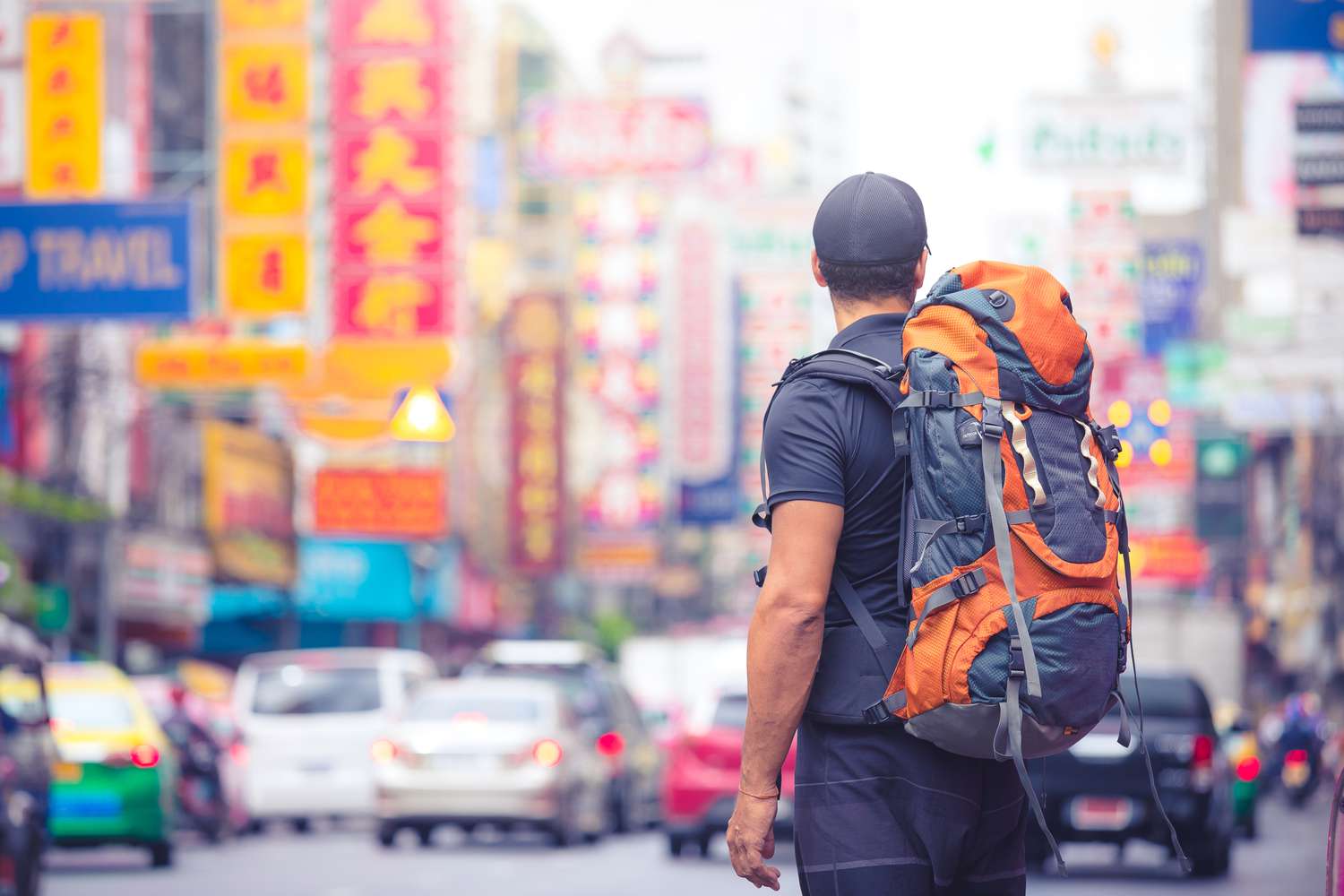Long-term travel in Asia offers an incredible opportunity to explore diverse cultures, landscapes, and experiences.
Whether you’re taking a gap year, on a sabbatical, or embarking on a digital nomad lifestyle, Asia provides endless possibilities for extended exploration.
In this guide, we’ll cover the essential steps and tips to help you plan and enjoy a long-term travel in Asia adventure, from visas to budgeting and cultural adaptation.
Long-Term Travel In Asia: How To Plan Your Journey
Planning your long-term travel in Asia requires careful thought and research to ensure a smooth and enriching experience. Here are some key steps for planning your journey:
1. Research Your Destinations
Asia is vast, with each country offering a unique experience. Research various countries, cities, and regions that align with your interests, whether you’re drawn to cultural landmarks, nature, or modern cities. Thailand, Vietnam, Bali, and India are popular spots for long-term travelers.
2. Understand the Climate and Seasons
Asia’s climate can vary drastically depending on the region. Some places have tropical climates, while others experience harsh winters. Understanding the weather patterns will help you decide the best time to visit specific regions.
3. Create a Flexible Itinerary
While it’s important to plan ahead, leaving room for spontaneity is key to long-term travel in Asia. Create a flexible itinerary that allows you to explore new destinations and adjust your plans based on recommendations from locals and fellow travelers.
Visa Tips And Entry Requirements For Extended Stays
When planning long-term travel in Asia, understanding the visa requirements for each country is essential. Here are some tips to navigate the visa process:
1. Research Visa Options
Each Asian country has different visa policies for tourists and long-term travelers. Many countries offer tourist visas that can be extended, while others may require a specific long-term visa. Research the visa options available for each destination you plan to visit.
2. Understand Visa Duration and Extensions
Some countries, like Thailand and Vietnam, allow you to extend your visa once you’re in the country, which can be a huge benefit for long-term travel. Make sure you understand the maximum stay duration and extension processes.
3. Consider Digital Nomad Visas
For travelers working remotely, digital nomad visas are becoming increasingly popular in countries like Bali (Indonesia), Georgia, and Estonia. These visas are designed for remote workers and allow you to stay in the country for an extended period while working online.
4. Keep Track of Your Visa Expiry Dates
While it’s easy to get caught up in the excitement of traveling, it’s crucial to keep track of your visa expiry dates and ensure you renew your visa or leave the country before your visa expires.
Long-Term Travel In Asia: Budgeting And Saving Strategies
A successful long-term travel in Asia experience depends heavily on how well you manage your finances. Here are some tips for budgeting and saving money during your travels:
1. Set a Realistic Travel Budget
Start by creating a detailed budget that covers your daily expenses such as accommodation, food, transportation, and entertainment. Cost of living in Asia can vary significantly, with countries like Thailand and Vietnam offering lower costs than more developed countries like Japan or Singapore.
2. Track Your Spending
Use budgeting apps or a spreadsheet to track your spending. Keeping a close eye on your finances will help you avoid overspending and allow you to make adjustments where needed.
3. Save on Accommodation
Consider budget accommodation options like hostels, guesthouses, or Airbnb rentals. If you’re traveling long-term, you may also find better rates by staying in one location for a longer time.
4. Use Public Transportation
Instead of expensive taxis or private transport, use local public transportation or ride-sharing apps like Grab in Southeast Asia. These options are not only cheaper but will also give you a more authentic experience of the local culture.
5. Eat Local and Street Food
One of the best ways to save money is by eating local food. Street food in countries like Thailand, India, and Indonesia is not only affordable but also delicious. Be sure to explore local markets for fresh ingredients and authentic meals.
Adapting To Local Cultures And Customs While Abroad
One of the most enriching aspects of long-term travel in Asia is the opportunity to immerse yourself in local cultures and customs. Here are a few ways to adapt and respect the traditions of the countries you visit:
1. Learn Basic Phrases in the Local Language
While many people in urban areas speak English, learning a few basic phrases in the local language can help you connect with locals and show respect for their culture. Simple greetings like “hello,” “thank you,” and “goodbye” can go a long way.
2. Be Respectful of Local Traditions
In many Asian countries, customs around dress codes, gestures, and public behavior can vary significantly from your home country. Research the local cultural norms before visiting and always approach local customs with respect.
3. Participate in Local Activities
Take the opportunity to participate in local festivals, cultural activities, or volunteer opportunities. These experiences will deepen your understanding of the country and give you a chance to connect with the local community.
4. Be Mindful of Your Environmental Impact
Many parts of Asia are known for their beautiful landscapes and ecosystems. As a traveler, be conscious of your environmental impact by minimizing waste, avoiding plastic, and respecting nature.
Health, Safety, And Digital Nomad Life During Long-Term Travel
When traveling long-term in Asia, health and safety are top priorities, especially for digital nomads who may need reliable internet and good health care access. Here are some important considerations:
1. Health Insurance and Vaccinations
Before leaving, ensure that you have comprehensive travel insurance that covers medical expenses. Some countries in Asia may require specific vaccinations for entry, so be sure to check with your healthcare provider.
2. Stay Healthy with Local Food
While street food is part of the charm of long-term travel in Asia, it’s important to choose food vendors carefully to avoid foodborne illnesses. Drink bottled water, especially in areas where tap water may not be safe to consume.
3. Safety Considerations
Most Asian countries are generally safe for tourists, but it’s essential to stay informed about local safety conditions. Avoid risky areas, especially late at night, and keep your belongings secure.
4. Digital Nomad Life
Digital nomads will find that many Asian cities offer excellent co-working spaces and reliable internet access. Popular hubs like Bali, Bangkok, and Chiang Mai are known for their strong digital nomad communities. Look for local spaces that offer great working environments, reliable Wi-Fi, and networking opportunities.
5. Stay Connected
Stay in touch with friends and family through digital platforms and use social media to connect with other travelers and local communities. Sharing your experiences can help you stay motivated and connected to the world.
See you in the next post,
Anil UZUN


